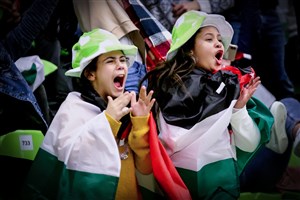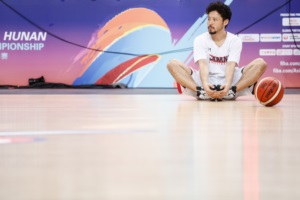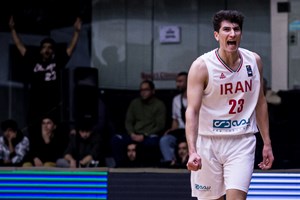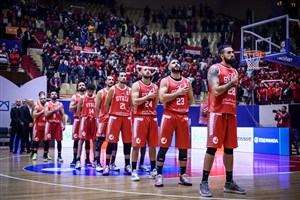
Home sweet home, rising stars, and more takeaways from the first window of the FIBA Asia Cup 2021 Qualifiers
BANGKOK (Thailand) - The first window of the FIBA Asia Cup 2021 Qualifiers has come to a close. There was plenty of intense action and even historic moments, but now that the dust has settled, it’s time to sit back and reflect on what we’ve learned.
-
Haddadi is still the big daddy of Asian basketball
No one likely doubted what Hamed Haddadi is capable of, but getting to see the 34-year-old star center excelling in action was fun as expected .
It seemed at times that Haddadi was merely toying around with the opposition and just enjoying the time of his life playing with his friends. He didn’t take matters into his own hands and takeover by scoring, but instead, he displayed his crisp and smart passing to show what a cohesive unit Iran was. Haddadi led all players in assists at Asia Cup 2017 on his way to his 4th MVP title, and he’s 3rd in assists so far at the Asia Cup Qualifiers after the first window.
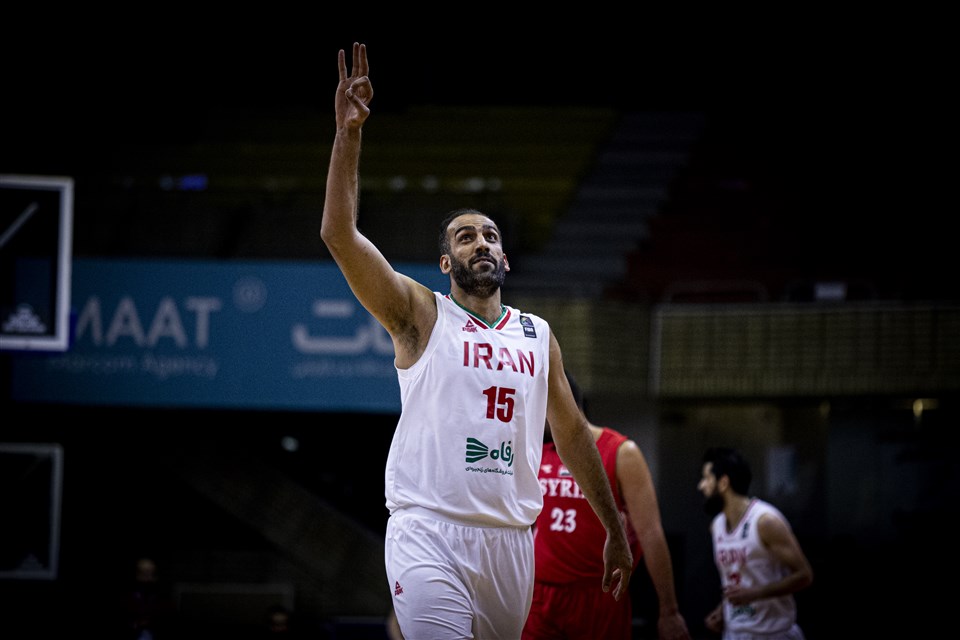
However, there have been outstanding performances from other players in this window that have the potential to compete with Haddadi in the future, too.
A prime candidate is Ryan Rossiter, who made a superb debut for Japan against Chinese Taipei. Rossiter dominated on the boards and put up points, but more importantly, he showed a similar feel for the passing game. The 30-year-old dished out 7 assists in the game, showing that familiarity is not an issue for the newcomer.
🇯🇵 🙌🙌 @rossiter22 with a nice no look feed to @hiejima_m6 #FIBAAsiaCup 2021 Qualifiers @JAPANBASKETBALL
— 🏀FIBA Asia Cup (@FIBAAsiaCup) February 24, 2020
日本 vs チャイニーズ・タイペイ pic.twitter.com/1GfO9EESNU
Another standout is a fellow All-Star Five from Asia Cup 2017, Shea Ili. The 27-year-old guard has been on a tear in recent years and continues to do so at the Asia Cup Qualifiers. His all-around averages of 23.0 points, 7.0 rebounds, and 6.0 assists per game becomes even more spectacular considering his opponents in the first window.

-
The Real Deal
First impressions are essential, and the higher-ranked teams in the Asia Cup Qualifiers were quick to make their presence known. Korea, New Zealand, Lebanon, Iran, and Jordan came out as the top teams with 2 wins at the end of the first window.
New Zealand, in particular, made the biggest statement by claiming their wins on the road against the 3rd-ranked team in the world, according to FIBA World Rankings presented by Nike, Australia, and a talented Guam squad.
One thing in common among all of these teams was that they balanced out the offense among all of their contributors, setting the example that team basketball is still the way to go to secure victories.
The Asia Cup Qualifiers is a lengthy process with two more Windows to go, but these teams are already off to a quick start with these two wins.
-
Star Power
On other occasions, some teams might have had to rely on their stars a bit more than the rest. That resulted in some explosive performances from those exceptional talents.
Palestine’s Sani Sakakini is the first name that comes to mind for his 44-point eruption against Kazakhstan. Only one other player came close to even topping 30 points, and even then, it was nearly as effortless as how Sakakini got his numbers. Palestine might not have got the win, and it was a superb performance by Kazakhstan to withstand Sakakini’s big game, but it was impressive to witness nonetheless.
Tyler Lamb was another player that had a big game, going for 28 points and 12 rebounds in Thailand’s close loss to Korea. Many expected Thailand as underdogs going against Korea in Seoul. Still, Lamb’s aggressive attacks to the basket and scoring kept the upset-minded team within range throughout the entire game.

-
Home, sweet home
The intrigue of the new qualification system for the FIBA Continental Cups is the fact that teams get a chance to play in front of their fans on their home courts. In this first window of the first-ever FIBA Asia Cup Qualifiers, it has resulted in some historic games.
When #basketball🏀 comes home 🇵🇸🏠 #FIBAAsiaCup 2021 Qualifiers
— 🏀FIBA Asia Cup (@FIBAAsiaCup) February 24, 2020
👀 https://t.co/WpqtPh1lmC
💻 https://t.co/SeZIVn2b3g
📲 https://t.co/PmMe4SXtbv pic.twitter.com/Gcoce30AXY
Palestine hosted the first-ever FIBA game in the country against Sri Lanka in a routing win. Basketball returned to Baghdad after a lengthy absence, and the fans responded by rocking the Al Shaeb Hall against India. Jeddah also hosted the first-ever FIBA game in the city as well, giving their proud supporters a chance to support their up-and-coming national team program up close.
International #basketball is 🔙 🇮🇶🏠!
— 🏀FIBA Asia Cup (@FIBAAsiaCup) February 24, 2020
Iraq vs India - Baghdad #FIBAAsiaCup Qualifiers
💻 https://t.co/SeZIVn2b3g
📲 https://t.co/PmMe4SXtbv@IraqiBasketball @BFI_basketball pic.twitter.com/a00NbiqqNn
The Qualifiers have given a chance for smaller basketball nations to get their devoted fans involved in the action, as seen throughout the region from Guam at Calvo Fieldhouse all the way Bahrain at the Khalifa Sports City Complex.
Go and check the schedule now for your team’s next home game at the Asia Cup Qualifiers so you can be a part of this entertaining experience.

-
Here comes the next wave
Another fun part of watching the FIBA Asia Cup Qualifiers saw the next generation of Asia and Oceania basketball get their chance to excel in their games. There were plenty of opportunities given to these youngsters, and they used those opportunities well to generate some buzz.
Lebanon’s 20-year-old sharpshooter Karim Zeinoun was one of the brightest performers, regardless of age, putting up an average of 15.5 points per game while missing only 3 of 14 shots throughout two games.

Freddy Ibrahim even exceeded the expectations of Jordan fans with his stellar game against Kazakhstan. The 23-year-old was one of the most efficient guards among all players and averaged 19.0 points, 5.5 rebounds, and 3.5 assists in two straight wins.
23-year-old Muin Bek Hafeez also had a surprisingly good run for India out of nowhere and was only a desperation shot by Bahrain away from being undefeated out of this window.
Thirdy Ravena also had a massive game for the Philippines, and the 23-year-old even outplayed his brother in the Philippines win over Indonesia. The younger Ravena had 23 points, 8 rebounds, 3 assists, and 2 blocks in the victoryใ
Don’t forget about the teenagers that got the green-light to go at the Qualifiers from Josh Giddey (Australia), Taine Murry (New Zealand), Muzamil Hamoda (Bahrain), Derrick Michael Xzavierro (Indonesia), Mohammadsina Vahedi (Iran), and Princepal Singh (India).
The list of promising youngsters from the Asia Cup Qualifiers could go on and on. Let’s leave this with the conclusion that the future for basketball in Asia/Oceania is quite bright and promising.
FIBA
